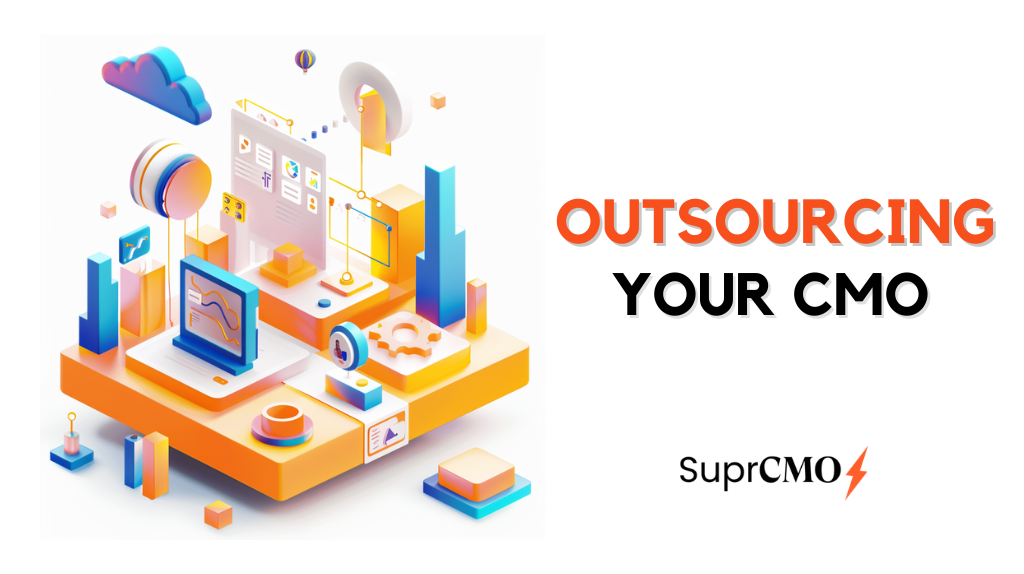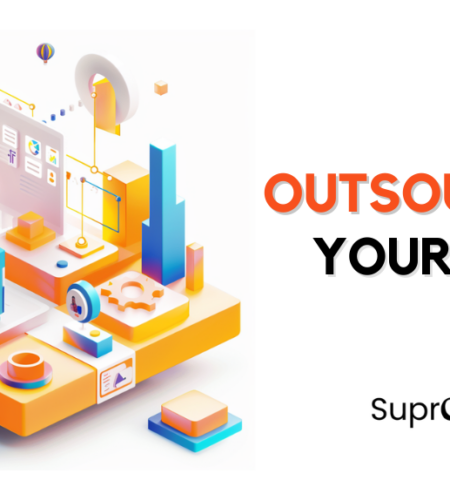
The virtual CMO model offers businesses a powerful way to access expert marketing leadership without the cost and commitment of a full-time, in-house CMO. However, building a successful partnership with a virtual CMO requires careful planning and consideration.
In this article, we will explore the key considerations and best practices for building a successful partnership with a virtual CMO and guide navigating this new and dynamic marketing model.
Establish clear objectives: Before engaging with a virtual CMO, the partnership must establish clear objectives. This will help ensure that both parties are aligned on goals and expectations and will provide a framework for evaluating the partnership’s success.
Define the scope of work: It is essential to clearly define the scope of work for which the virtual CMO will be responsible. This should include a breakdown of tasks, deliverables, and deadlines, as well as any key performance indicators (KPIs) that will be used to measure success.
What is the Outsourcing Your CMO?
“Outsourcing Your CMO” refers to hiring a virtual Chief Marketing Officer (CMO) to provide strategic marketing leadership remotely, outsourced. This model allows businesses to access expert marketing leadership without the cost and commitment of a full-time, in-house CMO.
The virtual CMO model has become increasingly popular in recent years as businesses seek to stay agile and responsive in a rapidly changing market. By outsourcing their CMO function, companies can tap into a diverse network of experts, scale their marketing efforts up or down as needed, and benefit from the flexibility and cost-effectiveness of the virtual CMO model.
A successful partnership with an outsourced CMO involves strategic planning, clear communication, and aligned expectations. Here are some best practices to ensure a fruitful collaboration:
Define Clear Objectives and Expectations
Start by clearly defining your business goals and what you expect from the partnership. This includes specific marketing objectives, KPIs, and the scope of work. A clear understanding of success for both parties sets a solid foundation for collaboration.
Ensure Cultural and Strategic Fit
The outsourced CMO should align with your company’s culture and strategic vision. This alignment is crucial for seamless collaboration and mutual understanding. Discuss your company’s values, mission, and long-term goals to ensure a good fit.
Establish Open and Regular Communication
Effective communication is critical to any successful partnership. Set up regular check-ins and updates to discuss progress, address challenges, and adjust strategies as needed. Utilize project management tools and platforms to keep everyone on the same page.
Leverage the CMO’s Network
One of the significant benefits of an outsourced CMO is its extensive network. Discuss how you can tap into this network to enhance your marketing efforts, whether for specific projects, specialist skills, or industry insights.
Encourage Collaboration with Your Team
Foster a collaborative environment where the outsourced CMO and your internal team can work effectively. This might involve cross-functional workshops, brainstorming sessions, or team-building activities to dynamically integrate the CMO into your team.
Focus on Data-Driven Decision Making
Ensure that data and analytics inform your marketing strategies. Work with the CMO to establish metrics and data analysis practices that drive decision-making, helping to refine strategy and achieve better results.
Be Open to New Ideas and Approaches
One advantage of hiring an outsourced CMO is the fresh perspectives they can offer. Be open to new ideas and approaches, even if they challenge the status quo. This openness can lead to innovative strategies that drive your business forward.
Review and Adjust Regularly
The market landscape is constantly changing, and so should your marketing strategies. Regularly review the partnership’s outcomes against your objectives, and be prepared to adjust your approach based on performance, market changes, and new opportunities.
CMO on Demand: The Advantages of Outsourcing
The Chief Marketing Officer (CMO) role has become increasingly important in today’s digital age as businesses seek to stay competitive and drive growth through effective marketing strategies. However, finding the right CMO can be a complex and resource-intensive, requiring significant time and investment.
Outsourcing the CMO role has emerged as a popular solution for businesses looking to access expert marketing leadership on a flexible and cost-effective basis. By engaging a CMO on demand, companies can benefit from the insights and expertise of a seasoned marketing professional without the commitment of a full-time hire.
Navigating the CMO Outsourcing Landscape: Industry Insights
The Chief Marketing Officer (CMO) role is critical to any business’s success, but finding the right CMO can be a complex and resource-intensive process. Outsourcing the CMO role provides businesses with a flexible, cost-effective solution for accessing expert marketing leadership.
This article will explore the advantages of outsourcing your CMO, including increased flexibility, access to a diverse network of experts, scalability, cost-effectiveness, and the ability to stay agile in a rapidly changing market. We will also provide insights into the current landscape of CMO outsourcing and offer guidance on how businesses can navigate this dynamic and evolving field.
Building a Dream Team: Outsourcing Your CMO for Success
A solid marketing strategy is crucial for success in today’s highly competitive business landscape. However, building a high-performing marketing team can be complex and resource-intensive. One solution that is gaining popularity among businesses of all sizes is outsourcing the Chief Marketing Officer (CMO) role.
Outsourcing your CMO can provide various benefits that can help businesses drive growth, maximize their return on investment (ROI), and build a dream team of marketing professionals. Here are some of the key benefits of outsourcing your CMO:
Access to Top Talent:
Outsourcing your CMO gives you access to a global pool of experienced marketing professionals. This allows you to find the best fit for your business, regardless of location or industry. Additionally, outsourcing your CMO can provide access to diverse skills and expertise, allowing you to build a well-rounded marketing team.
Flexibility:
Outsourcing your CMO provides greater flexibility, allowing you to scale your marketing efforts up or down as needed. This can be particularly beneficial for businesses with seasonal or fluctuating marketing needs.
Cost-Effectiveness:
Outsourcing your CMO can be more cost-effective than hiring a full-time CMO. This is because you only pay for the services you need when you need them. Additionally, outsourcing your CMO eliminates the need for hiring, training, and managing a full-time employee, further reducing costs.
Expertise and Experience:
Outsourced CMOs are typically experienced marketing professionals with a proven track record of success. They bring a wealth of knowledge and expertise to the table, helping you develop and execute effective marketing strategies.
Scalability:
With an outsourced CMO, you can easily adjust the scope of your marketing efforts to meet changing business needs. This allows you to quickly scale up or down as required without hiring and training additional staff.
Increased Focus on Core Business Activities:
Outsourcing your CMO allows you to focus on your core business activities while leaving the management of your marketing efforts to an expert. This can help you improve operational efficiency, increase productivity, and drive business growth.
Unlocking Potential: Maximizing ROI with an Outsourced CMO
The Chief Marketing Officer (CMO) role has become increasingly important in today’s digital age as businesses seek to stay competitive and drive growth through effective marketing strategies.
However, finding the right CMO can be a compleand resource-intensive, requiring significant time and investment. Outsourcing your CMO has emerged as a popular solution, offering a range of benefits that can help businesses build a dream team and drive success.
Outsourcing your CMO provides access to a global pool of experienced marketing professionals, allowing you to find the best fit for your business.
Rather than being limited to the local market, you can search for CMOs with the specific skills and expertise you need to achieve your marketing goals. This access to top talent can help you build a strong marketing team that is well-equipped to drive growth and competitiveness.
A Winning Collaboration: Secrets to a Successful CMO Partnership
Outsourcing your Chief Marketing Officer (CMO) can provide various benefits, from access to top talent and increased flexibility to cost-effectiveness and improved return on investment (ROI). However, building a successful partnership with your outsourced CMO requires careful planning, clear communication, and ongoing collaboration.
Conclusion:
The virtual CMO model represents an exciting opportunity for businesses to access expert marketing leadership on a flexible and cost-effective basis. However, building a successful partnership with a virtual CMO requires careful planning, clear communication, and ongoing collaboration.
By establishing clear objectives, defining the scope of work, setting up effective communication channels, fostering a collaborative relationship, and measuring success, businesses can maximize the benefits of working with a virtual CMO and drive growth in the dynamic and competitive digital age.
By following these best practices, businesses can confidently navigate the outsourcing of their CMO function and build a successful partnership that delivers real value and results.
Email: [email protected]
Frequently Asked Questions (FAQs)
What does it mean to outsource your CMO?
Outsourcing your CMO means hiring a Virtual or Fractional Chief Marketing Officer on a contract or part-time basis to provide strategic marketing leadership without employing a full-time executive.
Why should a business consider outsourcing its CMO role?
It offers access to experienced marketing leadership at a lower cost, greater flexibility, faster execution, and scalability based on business needs.
How is a Virtual CMO different from a Full-Time CMO?
A Virtual CMO works remotely and part-time, while a Full-Time CMO is permanently employed and fully embedded within the organization.
What are the key benefits of outsourcing a CMO?
Cost-efficiency, access to specialized expertise, flexibility, faster time to strategy execution, and minimal overhead.
What types of businesses benefit most from outsourcing their CMO?
Startups, SMEs, or growing companies that need senior-level marketing strategy without the cost of a full-time hire.
How should a business prepare for hiring an outsourced CMO?
Define clear objectives, scope of work, KPIs, and internal team expectations before initiating the partnership.
What is the first step in building a successful outsourced CMO relationship?
Establishing well-defined goals and expectations for both the business and the CMO to align efforts and measure outcomes.
How can businesses ensure alignment with their outsourced CMO?
By sharing company culture, strategic vision, values, and desired business outcomes upfront.
What tasks can an outsourced CMO handle?
Brand strategy, marketing planning, digital campaigns, team guidance, marketing tech stack management, and analytics oversight.
How should communication be managed with an outsourced CMO?
Through regular check-ins, status updates, collaborative tools, and clear reporting structures to maintain alignment and accountability.
How do outsourced CMOs collaborate with internal teams?
They work alongside internal staff, often leading strategic initiatives and providing high-level marketing direction without disrupting workflows.
What tools can facilitate remote collaboration with a Virtual CMO?
Tools like Slack, Zoom, Trello, Asana, and Google Workspace enable seamless communication, project tracking, and document sharing.
What should be included in the scope of work for a Virtual CMO?
Specific deliverables, timelines, responsibilities, and performance metrics to guide the engagement and measure success.
Can a Virtual CMO help scale marketing efforts quickly?
Yes, Virtual CMOs offer scalable services, adjusting involvement as your marketing needs grow or fluctuate.
What are common KPIs for evaluating a Virtual CMO’s performance?
Lead generation, conversion rates, ROI, campaign performance, brand engagement, and marketing-qualified leads (MQLs).
How can a Virtual CMO contribute to ROI optimization?
By developing data-driven strategies, eliminating inefficiencies, and focusing resources on high-impact marketing channels.
What are the risks of outsourcing your CMO?
Potential misalignment with company culture, communication gaps, or limited long-term commitment if not properly managed.
How can businesses mitigate the risks of outsourcing a CMO?
By setting expectations clearly, choosing culturally aligned professionals, and fostering transparent, ongoing communication.
How often should businesses review their CMO partnership?
Monthly or quarterly reviews are recommended to assess progress, recalibrate strategies, and ensure the partnership delivers value.
Is outsourcing your CMO a long-term solution?
It can be, depending on the business model. For many companies, long-term engagement with a Virtual CMO offers continued strategic leadership without full-time commitment.


Comments